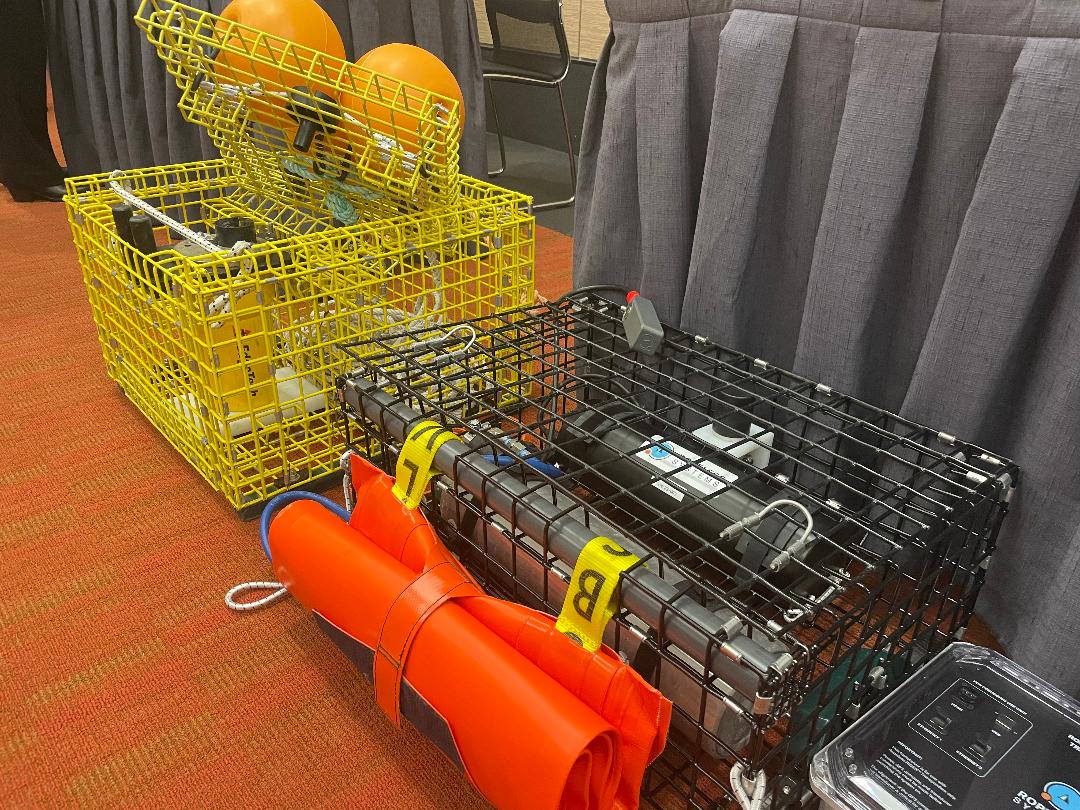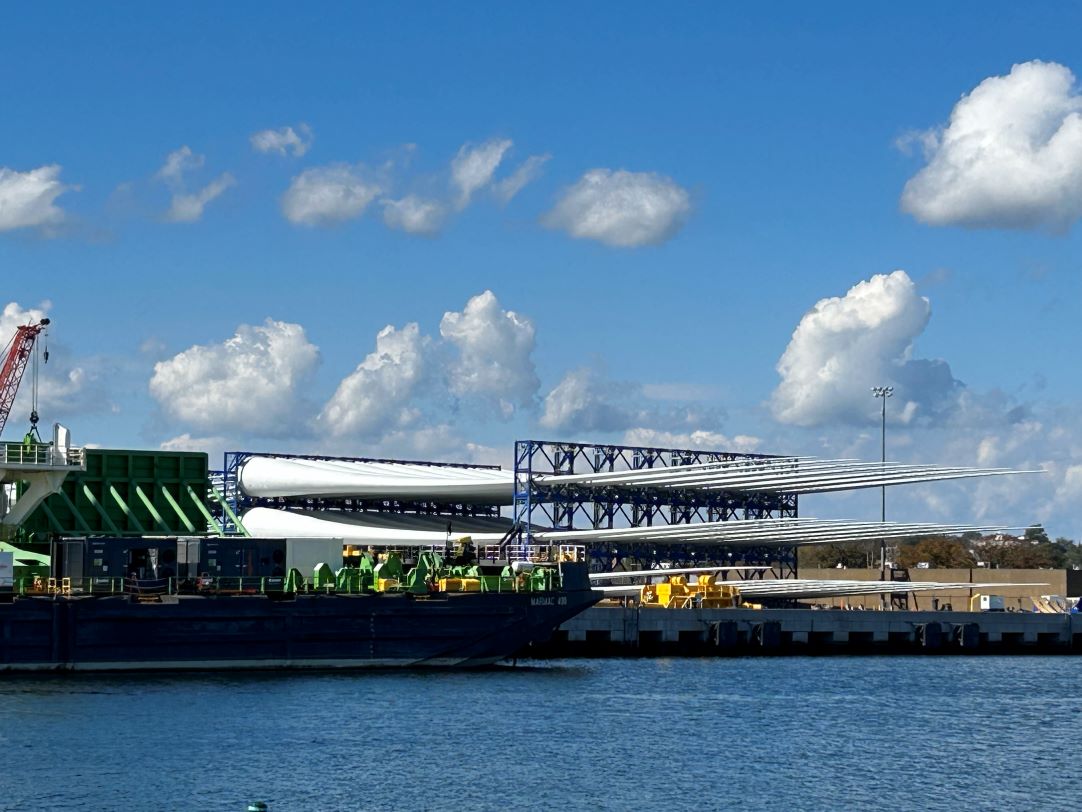New England’s Fishing Fleet Weathers Rough Regulatory Seas
November 19, 2010
NEW BEDFORD, Mass. — Plagued by ever-shrinking fish stocks and an increasingly nebulous regulatory process, the New England groundfish fleet has been in stormy seas for years. Depending on whom you ask, management of New England’s fishery has gotten either somewhat better or a whole lot worse in recent months.
That’s because on May 1 the groundfish fleet transitioned to a new management scheme, known as “sector management” or “catch shares.” Half a year later, the system is getting mixed reviews.
“The sector system has been in place for six months now,” said UMASS-Dartmouth oceanography professor Brian Rothschild at a Nov. 9 community meeting sponsored by the New Bedford Standard-Times. “Unfortunately, catch shares don’t appear to be an improvement over the old system.”
The old system, in place since 1995, allowed each permit holder to fish a certain number of days per year, determined by his or her landings in previous years. For some species, fishers also had to respect trip limits and closed areas.
Fishermen reviled the days-at-sea system because it was too restrictive. Conservationists disliked it because it wasn’t restrictive enough, at least not of the one concrete measure of fishing impact: total number of fish caught.
The catch-shares system, which does not replace the days-at-sea system but operates alongside it, puts a firm cap on catch, while making life easier for fishermen by giving them control over when and how they fish.
The new system is known as “catch shares” because it links each permit holder to a share of the total catch limit, based on landings in previous years. Its other moniker, the “sector system,” derives from the fact that to access his or ner allotted share, a participating fisherman must join with other fishermen to form a group known as a sector. Within a sector, fishermen distribute shares among members so as to optimize individual business strategies.
Fishermen have formed 19 sectors around New England. Given the choice to join a sector or to continue fishing under the days-at-sea system, half of the fleet, representing 98 percent of the catch, enrolled in one.
In Rhode Island, members of Point Judith-based Northeast Sector V are “managing to make it work for them,” said sector manager Meredith Mendelson, despite low allocations and the complexities of shuffling catch shares around among members.
But industry accolades for the sector system are rare. In what appeared at first to be an exception, Carlos Raphael announced at the New Bedford discussion that, “The sector system is perfect.” But Raphael, the owner of 20 boats in New Bedford, went on to clarify, “There’s only one problem with it; it only works for me.”
Permit holders like Raphael, who have been able to buy permits from others who are struggling, may indeed, prosper under the new system. But others may find themselves in the shoes of Stephen Welch, who owns two boats in Massachusetts ports and said at the meeting, “We’re losing boats in my sector. I’ve laid off three very good friends of mine, and it breaks my heart.”
Consolidation is not just a side effect of the new system, but an underlying goal. At a symposium at Roger Williams’ Law School on Nov. 5, Vito Giacalone of the Gloucester, Mass.-based Northeast Seafood Coalition, stressed the benefits of consolidation, saying that catch shares offer an avenue to “right-size” the fleet, by getting rid of excess capacity.
With the overfished status of fish stocks keeping catch limits low, catch shares proponents point to the bright side of consolidation, it allows everyone left fishing to make a living. But, Giacolone cautioned, consolidation can go too far. “If you set up too liquid a currency,” he said, “it will go corporate very fast.”
The specter of large corporations gobbling up New England fishing permits is rivaled in fishermen’s minds only by that of federal regulatory power run amok.
In June, industry groups such as the Rhode Island Fishermen’s Alliance joined the communities of New Bedford and Gloucester in filing suit against the National Oceanic and Atmospheric Administration (NOAA) on the grounds that the sector management system is “an example of the government running afoul of the law and being doctrinaire, arbitrary and, in some cases, punitive.”
That same month, the Narragansett Town Council asked NOAA to suspend the sector system, citing concerns that “the economic impact of lower federal catch limits and the transition to the catch shares/sector management system will be devastating to the already struggling fishing industry.”
And in August, resentment spilled onto the water, when a dozen boats formed a protest flotilla to greet President Obama on his vacation to Martha’s Vineyard.
This is despite the fact that the sector system was instituted not by NOAA, which lacks the authority to formulate fishery management plans, but through a unanimous vote by the New England Fisheries Management Council, a regional decision-making board made up primarily of governor-appointed fishing industry members.
Despite the turmoil in the Northeast, on Nov. 4, NOAA released a nationwide Policy on Catch Shares. In that document, NOAA commits itself to supporting new and existing catch shares systems by providing knowledge and other resources to regional Fisheries Management Councils pursuing catch share programs.
This bifurcated reality, with NOAA endorsing the spread of catch share systems around the nation while fishermen under catch shares in New England rail against them, is further polarizing two already divided worlds.
“Initially, we did not have a time when fishermen felt we were at war with the federal government,” said Richie Canastra, head of the Whaling City Seafood Display Auction, at the New Bedford meeting. “There was a time when felt we would see the reward of our sacrifices.”
The first six months of sector management in New England’s groundfish fleet are another reminder that those halcyon days are long gone.
Categories
Join the Discussion
View CommentsRelated Stories
Your support keeps our reporters on the environmental beat.
Reader support is at the core of our nonprofit news model. Together, we can keep the environment in the headlines.
We use cookies to improve your experience and deliver personalized content. View Cookie Settings



